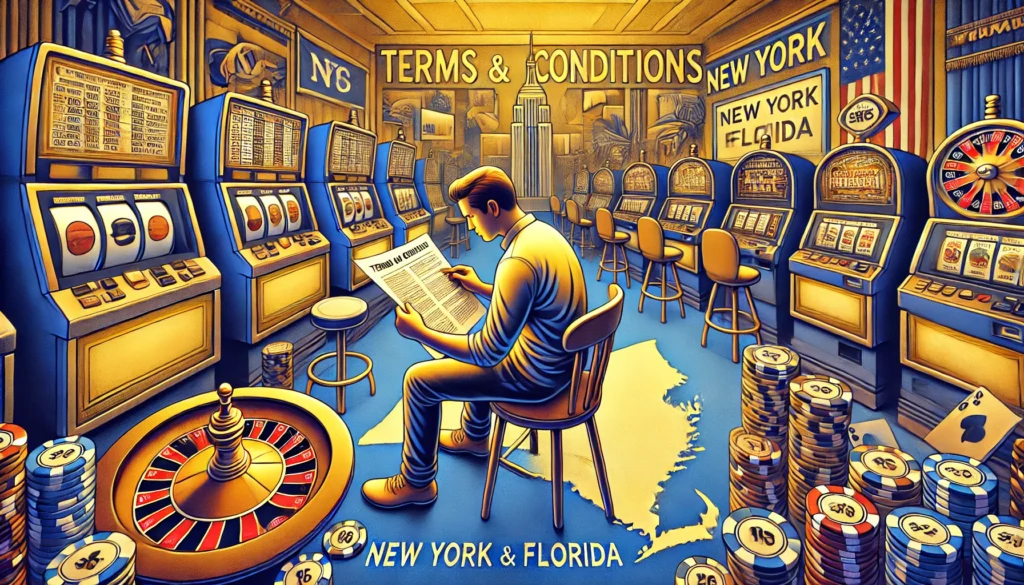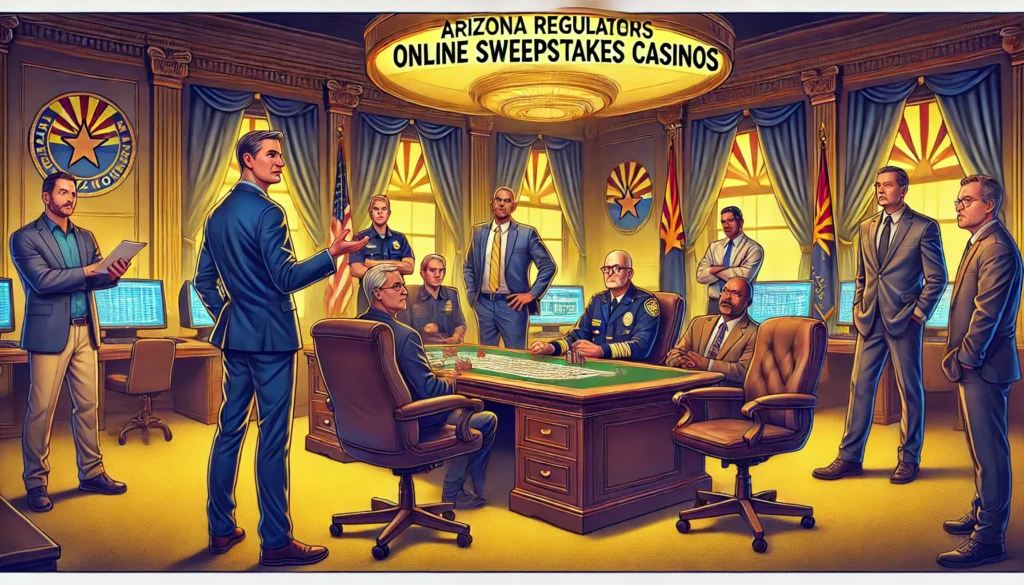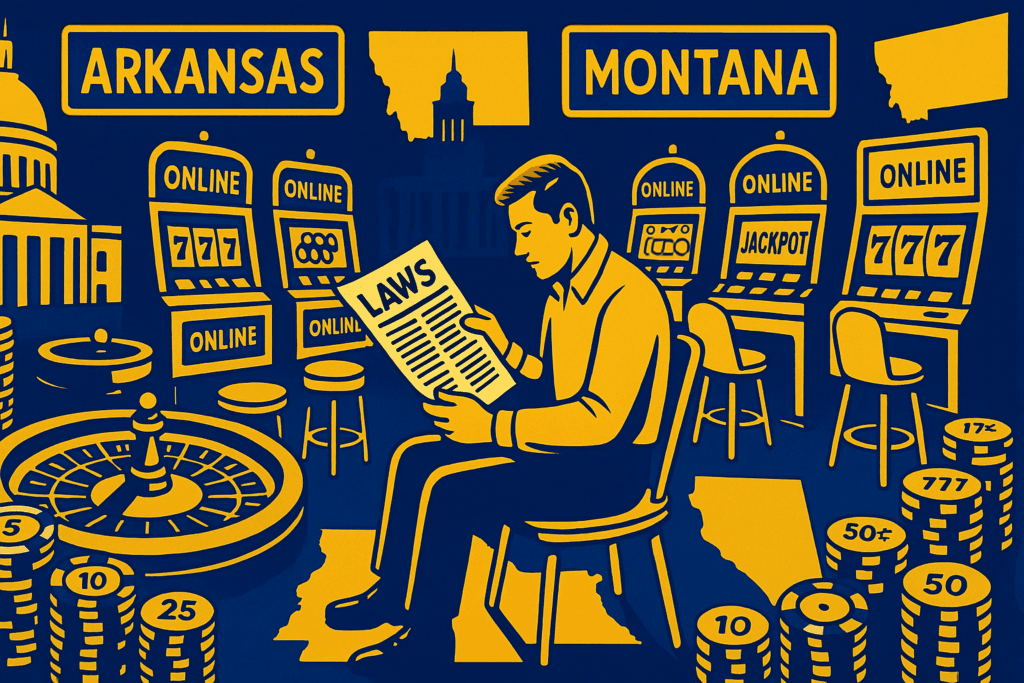The increasing attention paid to sweepstakes gaming over the past year could actually serve to expedite iGaming legislation in the U.S.
It’s hard to say how many state legislatures had sweepstakes casinos on their radar before 2024. In states without regulated iGaming (and without respective boards or commissions to oversee online casinos), most lawmakers probably didn’t even know what Sweeps Coins were.
But last year, sweepstakes casinos surged in popularity as real-money iGaming legalization screeched to a halt in the U.S. They got more bold in their tactics around advertising, including signing celebrities as ambassadors. The American Gaming Association (AGA) responded by publishing a memo in August asking state gaming regulators and attorneys general to investigate sweeps gaming sites and make determinations on the legality of the internet sweepstakes model.
So far, mostly states with regulated iGaming have taken any action. But, on a grander scale, the sweeps question is likely fueling more discussion around regulation of internet casinos in other states too.
Follow the money, find interested lawmakers
The recent spotlights and headlines around sweeps sites are making the social gaming industry harder to ignore across the board. The added attention could be working to stoke momentum for iGaming bills in many states as gaming boards and legislators become more aware of the prevalence of sweepstakes gaming within their respective states.
That applies especially in states looking for additional tax revenue streams.
“Consumers are being deprived of protections and states are forgoing significant tax and revenue opportunities as this gambling replaces that conducted through regulated channels,” the AGA memo reads.
Just follow the money, right? And there is no money to follow for sweeps operators, because they’re unregulated and, thus, un-taxed. That’s a whopping zero dollars directed toward state coffers. That will get lawmakers paying attention.
So far in 2025 we have seen six state legislatures introduce iGaming bills, with several more expected to at least consider online casinos during this legislative session. States with bills filed include Maryland, Virginia, Indiana, Wyoming, Massachusetts, and New York.
Regulated iGaming states have led enforcement actions
Michigan, Delaware, and Connecticut have all sent cease-and-desist letters to at least one sweepstakes operator. It is no coincidence all three (out of seven states total) have regulated iGaming.
In states without regulated iCasinos, it’s typically more ambiguous as to what enforcement agency would take up the sweeps question, not to mention where it would fall on their list of priorities.
One takeaway is that states with legal iGaming and enforcement agencies explicitly authorized to regulate them are much more likely to take enforcement actions to ban the sites from serving residents in their states. Michigan, in particular, has a strong track record of the gaming board working with law enforcement and governmental agencies to crack down on unauthorized land-based gambling operations and they have carried that approach into online enforcement.
Could Maryland’s sweeps stance help pass an iGaming bill?
Just last week, Maryland’s gaming board, which regulates the state’s land-based casinos and retail and online sports betting, sent out cease-and-desist letters to 11 gaming companies including six sweeps operators, first reported by industry consultant Dustin Gouker on LinkedIn. While Maryland does not have regulated iGaming yet, it is a frontrunner to be the next state to pass iGaming legislation thanks in part to keen interest in both legislative chambers to get a bill to the voter ballot.
It’s quite possible that the sweeps issue could actually help drive favor for iGaming bills in places like Virginia and Maryland, where key opposition comes from regional casino operators Cordish Companies and Churchill Downs. Companies that see internet casinos as more of a threat to brick-and-mortar revenues could be swayed by the promise of gaming boards cracking down on sweepstakes casinos already operating within the states.
Either way, going forward, new iGaming legislation is unlikely to be able to ignore the sweepstakes elephant in the room. It’s becoming more clear that legislators will need to proactively address their stance on the matter within the online casino framework they set up.
Maryland is tipping its hand as to how it plans to treat sweepstakes casino sites in whatever iGaming bill eventually gets through the legislature and in front of voters (which could be as early as 2026).
The extra assurance to would-be internet casino license holders that the gaming board will only allow regulated casinos of their brands of choice could be convincing even for the most outspoken iGaming opponent, Cordish Companies.
New Jersey looking to take a different approach
In states where regulated iGaming was established prior to the latest sweeps wave, the rules and enforcement for sweeps casino sites remains muddled. Whether it falls to gaming boards, the attorney general’s offices, law enforcement, legislatures, or a mix thereof depends on the state and is rarely expressly defined.
In Michigan, Delaware, and Connecticut, the gaming regulator has stepped up to claim the task. They were the ones that sent the cease-and-desist letters.
New Jersey is taking a different approach. The NJ legislature, or at least one legislator, is proposing to amend the state’s iGaming regulations to include sweepstakes casinos within their regulated online casino framework. It feels like a bold move in an environment where the regulated gaming industry has come out overwhelmingly against sweeps operators.
However, New Jersey was the first state to establish a healthy and robust internet casino market and it has been considered widely successful. If this proposed NJ bill actually gets through (and this is widely seen as doubtful at best), it would at minimum be a strong test case for incorporating sweeps sites into the regulated market.
The proposed amendment also grants authority for the NJ Division of Gaming Enforcement to work with law enforcement agencies and telecommunication companies to prevent unauthorized sweeps sites (those that don’t go through the regulatory hoops to get licensed) from operating in NJ.
This is a significant piece of the puzzle and goes back to the confusion around who it falls on to regulate sweepstakes casinos in different states. Assemblyman Clinton Calabrese is evidently trying to remove the ambiguity around that question by clearly defining it in their iGaming legislation by amendment.
The NJ sweeps experiment … results TBD
Would the NJ experiment work? Who knows. But it’s hard to imagine it passing with 20-plus existing online casinos already competing for a piece of the iGaming revenue pie in NJ.
That said, it could also present an opportunity for NJ’s existing iGaming licensees to negotiate more favorable revenue share deals with sweeps operators clamoring to get into New Jersey, a state with a hefty population of over 9.5 million and a top three online casino GGR market.








